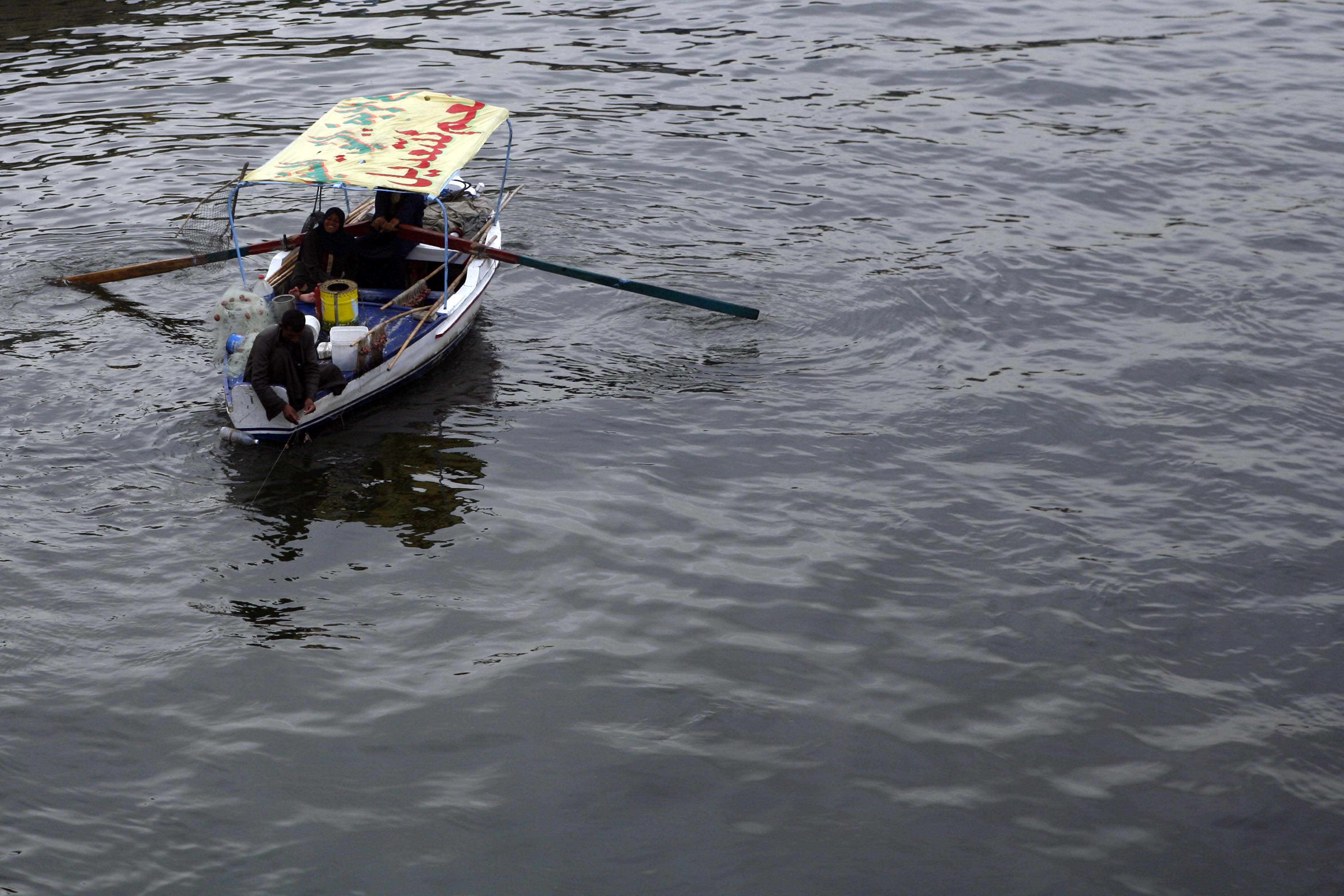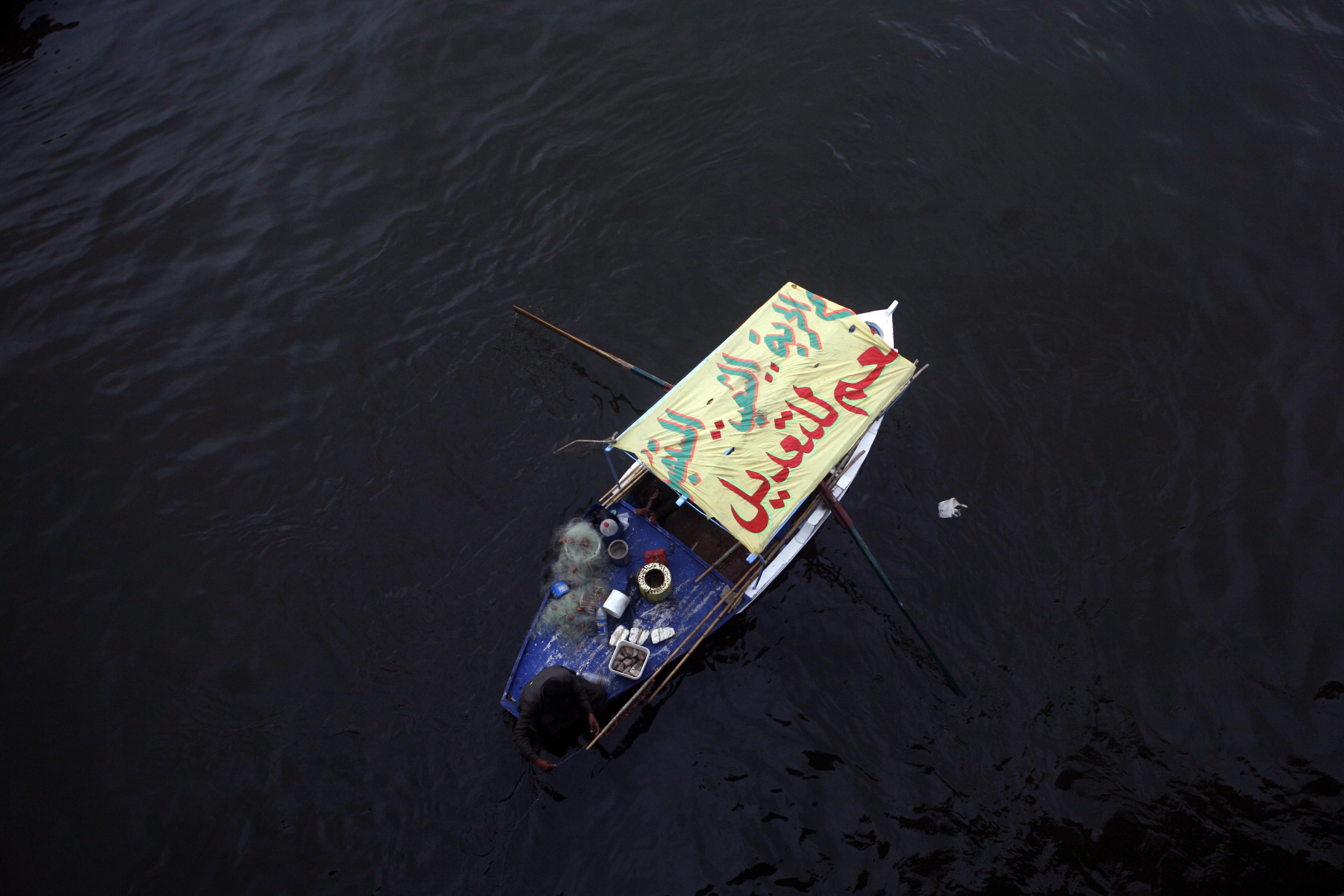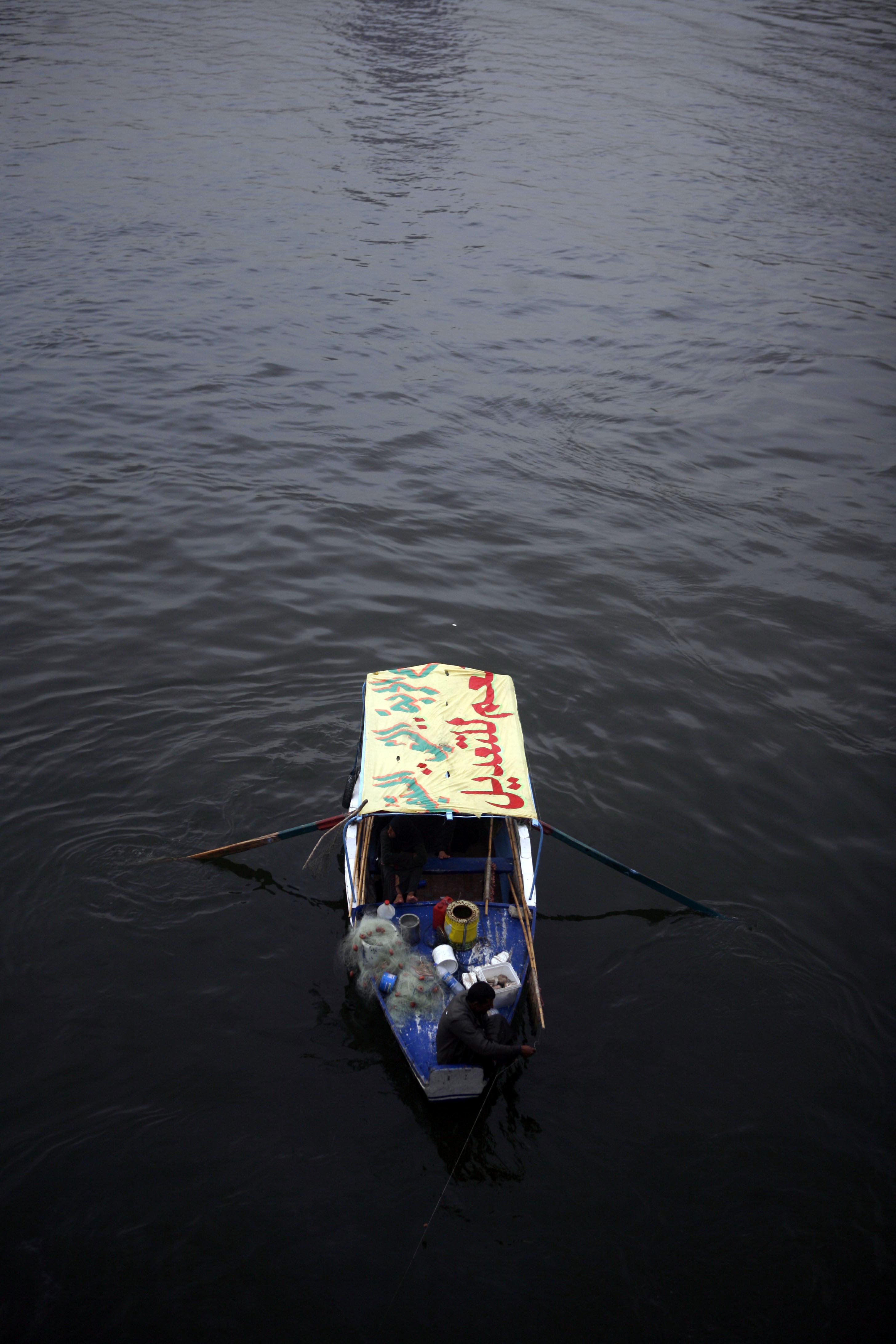Who says Mubarak’s constitutional amendments are dictatorial and do not benefit the people?!
Here’s an Egyptian family who benefited a lot from the amendments. They used one of the banners put up by the NDP hypocrites in support of the amendments, as a roof for their boat, where they live and work.
Photos by Amr Abdallah.


